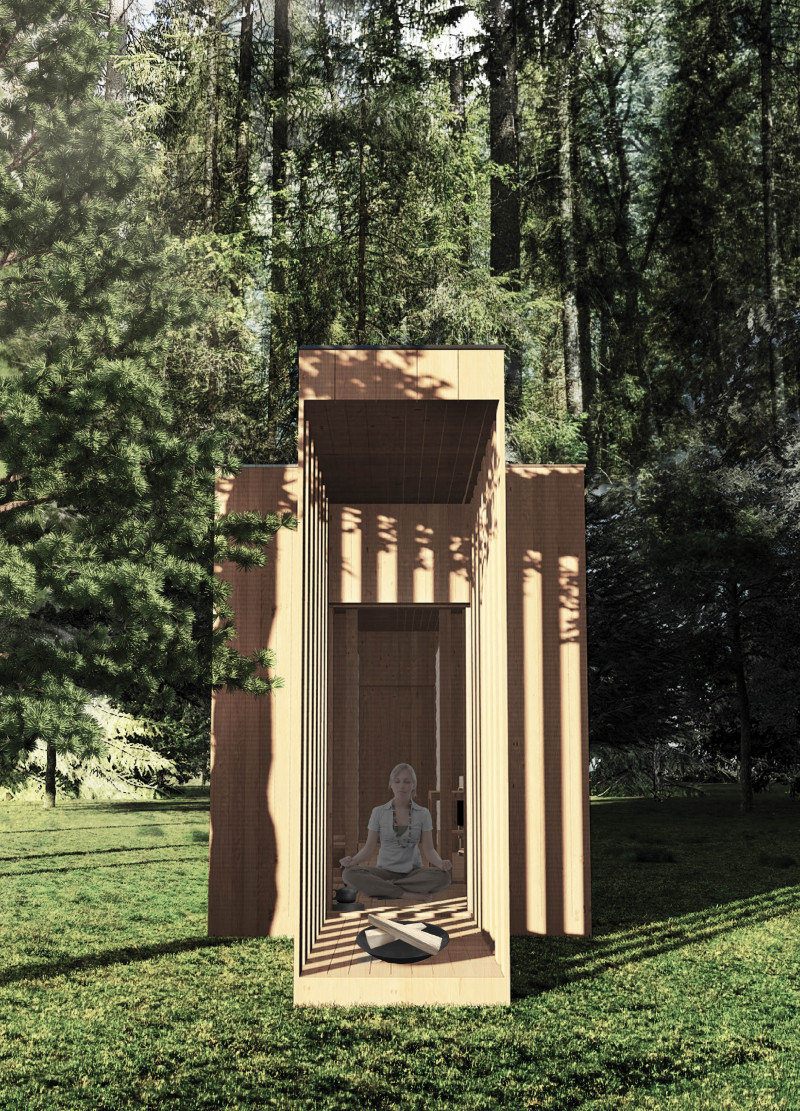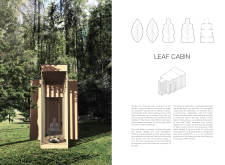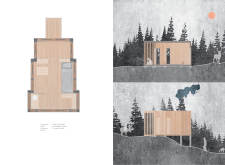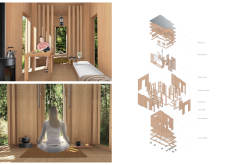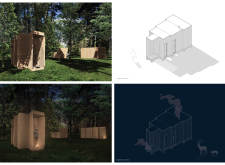5 key facts about this project
The Leaf Cabin is located in Latvia, between the Ozolini retreat and Lake Bezdibenė. It offers a quiet space for people looking to escape busy urban life. The design centers on the idea of finding peace and self-discovery in nature. By connecting the built structure with the surrounding landscape, the cabins create an environment that encourages mindfulness and reflection.
Design Inspiration
The overall shape of the Leaf Cabin takes inspiration from the structure of a tea leaf. This results in long, slender forms that harmonize with the natural surroundings. This choice aims to relate the buildings to the environment, ensuring that they look like an extension of the forest rather than separate entities.
Structural Composition
Wooden posts are key components in the design. They create interesting patterns of light and shadow inside the cabins. This design not only enhances the visual appeal but also supports a conversation between indoor and outdoor spaces. Occupants can appreciate different areas for meditation, relaxation, and interaction with nature while maintaining a clear connection to the forest.
Material Strategy
Sustainability plays an important role in the choice of materials. Local spruce trees are primarily used, supporting environmental goals while also helping the cabins blend in with the landscape. This decision highlights the importance of locality, making the project feel more connected to its geographic setting.
Spatial Experience
Sliding doors feature prominently throughout the cabins. They offer easy access and allow light and air to flow freely. Such design choices enhance the sensory experience and help blur the lines between inside and outside. The result is a calming space where nature becomes part of daily life.
Inside, the Leaf Cabin fosters a tranquil atmosphere, allowing light to filter through and casting gentle shadows on the interior. This environment invites individuals to pause, reflect, and feel a deeper connection to the natural world around them.


